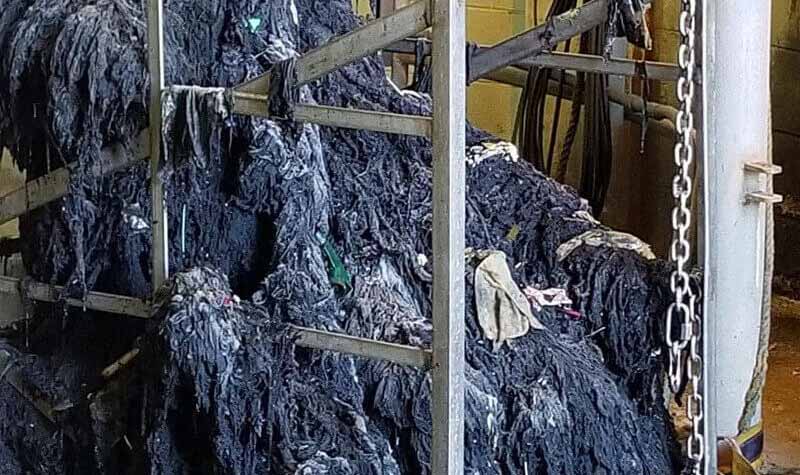
Increasing Wipes Use Presents a Strain On Wastewater Systems
As the Coronavirus pandemic is upending life across the country, it is also putting a major strain on the nation’s wastewater systems.
From Franklin Miller.
Shoppers are flocking to stores to stock up on toilet paper, paper towels, tissues, and cleaning wipes as they self-isolate at home and try to keep the virus at bay. Many are flushing these items rather than disposing of them properly, which can be catastrophic to pipes and wastewater systems.
The major influx of wipes and other cleaning materials into plants is increasing the demand for high powered sewage grinders such as manufactured by Franklin Miller Inc. of Livingston, NJ. According Franklin Miller’s President, William Galanty, we’re hearing from wastewater plants around the country as well as nursing homes, condo complexes and hospitals. Blockages caused by non-flushable materials are presenting a major challenge to plant operations. Says Galanty, “we always recommend that the public not flush cleaning materials or other foreign objects because plants are experiencing major issues with them.”
These various cleaning and disinfecting materials can be quite useful at home but they are often not biodegradable and do not break down like toilet paper. Instead, they accumulate in and clog pipes, congregate on equipment, cling to valves, hang out on pump impellers, and generally constitute a dangerous nuisance at times like these.
In many cases, a lack of toilet paper has led residents to use other items in place of toilet paper. Numerous sewer pump clogs are being reported from the influx of paper towels, napkins and in some cases even material such as cut up towels or clothing. Because these items are not meant to break down like toilet paper, they are clogging the systems.
Sewer officials across the nation are putting out a distress call over this crisis within a crisis. The combination of a shortage of plant personnel and this major influx of wipes and other cleaning materials is costing municipalities large sums in increased plant maintenance and downtime.
Officials warn of the growing problem in not only the wastewater treatment system, but in individuals homes as well. In a statement, the Boston Water Commissioner stated that clogged pipes can lead to additional health hazards. “In these times when we’re confronting a major health crisis, the addition of health hazards created by clogged pipes and blocked sewers are situations we don’t need and that are quite avoidable,” the sewer commission said in a statement.
New Jersey American Water put out an advisory to their customers not to flush anything down the toilet. “Flushing wipes, paper towels or other paper products not intended for use in wastewater systems down the toilet can lead to sewer backups and in-home plumbing issues that may be expensive to repair.”
Learn more about this topic at our upcoming webinar:
Addressing Ragging Issues in WWT and Collection Systems with Effective Grinding and Shredding with Franklin Miller
Date: May 7 2020 11am EST
Register here: https://zoom.us/webinar/register/WN_6rGt09V8SSuxxzk4vrnwqw